‘Recovery of NPLs overseas will strengthen Bangladesh’s banking sector’
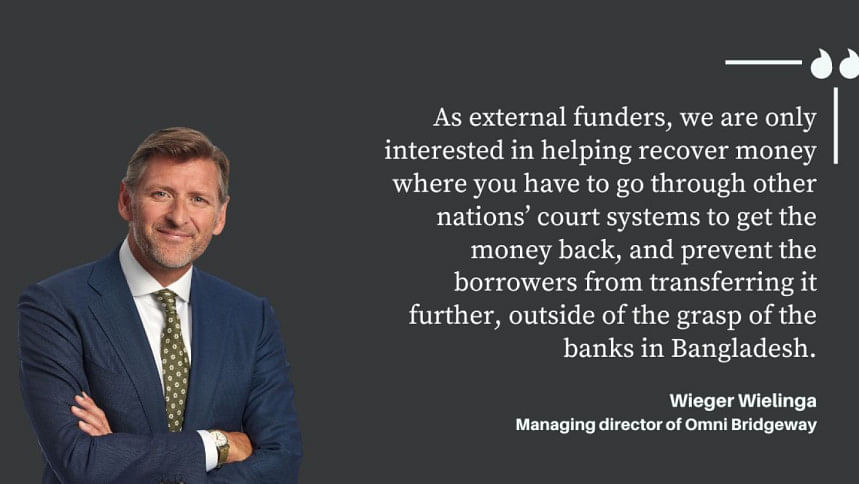
Efforts to recover assets stolen during the Awami League regime—much of which was illicitly transferred abroad—are currently being led by the interim government of Bangladesh. A specially established "asset recovery task force," under the leadership of Bangladesh Bank Governor Dr Ahsan H Mansur, is spearheading the initiative. The strategy includes enlisting international law firms, insolvency practitioners, asset tracing investigators, and litigation funding providers. Among them is Omni Bridgeway, one of the world's leading litigation funders. A team by Omni Bridgeway has visited Dhaka several times and expressed interest in assisting Bangladesh in recovering its non-performing loans (NPLs).
During a visit in May this year, Wieger Wielinga, managing director of Omni Bridgeway, spoke to Ramisa Rob of The Daily Star in an exclusive interview, breaking down the concept of litigation funding and how he hopes to support Bangladesh in the process to bring back the money that was laundered abroad through the banking sector.
Can you tell us a bit about yourself and Omni Bridgeway?
I started my career as a litigation lawyer, working in the Netherlands and the US, and later took part in development projects in post-Soviet states with the World Bank. I joined Omni Bridgeway in 2001 with Raymond van Hulst, who is now our CEO, and Jurriaan Braat, also our managing director. At that time, the company—operating globally since 1986—focused on asset recovery for governments, banks, and political risk insurers. Over the next two decades, we expanded, and following our merger with IMF Bentham in Australia in 2019, Omni Bridgeway became one of the largest global funders and is currently a listed entity in Australia.
We work worldwide with 22 offices, so we have the local know-how in places where NPLs from Bangladesh have ended up. The backgrounds of our investment managers are mostly lawyers and experts from top law firms, bankers who worked in the recovery department of banks or as insolvency practitioners, and like myself—individuals with a combination of law and intelligence expertise. I worked in military intelligence, as did my fellow Bangladesh team member Anthony Elwood Russel. For Bangladesh, we would have a robust international team, including a former lawyer-turned-banker with extensive NPL recovery experience. This core team is supported by colleagues from our offices in Singapore, Dubai, Netherlands, UK, US, Canada, and Switzerland.
What exactly is litigation funding, and why did you take an interest in Bangladesh?
So, to explain litigation funders: our work is to provide access to justice to plaintiffs involved in legal disputes, either in court or arbitration, by covering all the costs associated with the dispute, so that the plaintiffs themselves—Bangladesh's banks, in this case—do not have to risk their own capital in costly proceedings. When we take on a case, we cover lawyers' fees, but also court fees, expert fees, investigators' fees, disbursements, and any security for costs needed to facilitate the proceedings through the institutional capital we manage, which as of today, is 3.5 billion Australian dollars ($2.3 billion). In return, we receive a share of the proceeds if the case is successful. If the case is unsuccessful, we lose our investment, but the user of our services bears no financial risk. So, it is a risky business, where experience and a solid process for selecting the right cases as well as experience in managing the cases until success is key.
We are primarily looking at the non-performing loans of the commercial banks—financing and managing the process of getting the money back to the banks from abroad. These loans were not gifts. They need to be repaid by the rightful party—including the ultimate beneficiaries who may be hiding behind shell companies or complex offshore structures—and they have to be brought back to where they belong: the banks.
Our portfolio is diverse, from construction disputes in Dubai to onshore arbitrations in the People's Republic of China to patent cases in the US, and debt recovery projects like those in Bangladesh. We have worked with governments, financial institutions and exporters for over 35 years, so we have developed a wealth of expertise in recovering and collecting from evasive debtors in almost all jurisdictions around the world. Global enforcement and debt recovery are what we are best known for. In 2017, we were approached by the World Bank's International Finance Corporation (IFC), and with them we have set up a specific fund aimed at assisting banks in the MENA region with cross-border recoveries, protecting the rule of law by ensuring everyone, irrespective of status, is held accountable to ensure banks maintain capital to provide new loans. So our experience matches with the current needs of Bangladesh's banking sector.
Probably because of our reputation, we were put in touch with the governor of Bangladesh Bank, Ahsan H Mansur. We took an interest in at least a subset of the cases where money was laundered out of the country by the Sheikh Hasina regime.
To be more specific, we are primarily looking at the non-performing loans of the commercial banks—financing and managing the process of getting the money back to the banks from abroad. These loans were not gifts. They need to be repaid by the rightful party—including the ultimate beneficiaries who may be hiding behind shell companies or complex offshore structures—and they have to be brought back to where they belong: the banks. It is obvious that the recovery of these loans would strengthen the cash balance of Bangladesh's banking sector. It would also bring about a system of accountability and sanctions on those who did not follow the rules. We strongly believe that it is important to recover these loans, whether with our or other experts' help.
It is perhaps important to clarify that we would not finance domestic recovery, because Bangladesh is perfectly capable of doing that. We would take on the recovery where international litigation is needed. It is also important to distinguish us from a law firm. We finance and help select the right law firm for the cases, and where needed, external experts or asset tracing companies. We work together with international law firms and experts, pay all their bills for and on behalf of the client—in this case they are the private banks of Bangladesh—and help the client coordinate the entire recovery endeavour, all the way up to successful recovery, which is defined as money in the bank, not some legal win. Unlike lawyers, we do not get paid based on the damages in a judgment but from actual recoveries, so only when the money is returned to the banks of Bangladesh.
Do the banks in Bangladesh actually hold cases with realistic recovery potential? What's your success rate in cases like this?
Based on the information we've seen so far, yes, we believe there is genuine potential. But we do not want to over-promise. We are in the initial stages of reviewing more detailed bank files. The Bangladesh Bank governor has taken the right steps to speed up the process.
We have high financial stakes on our end. So we only take on cases that we assess and find that there's at least a 70 percent chance of a substantial recovery success. And before accepting cases, we have to prove this to our investment committee, which consists of former judges, top lawyers, financial experts, and country experts. It is a critical, contentious process, like a mini trial, so in order to not waste anyone's time, I will not submit a case to the committee if I am in doubt myself. For instance, it could be that the assessment of a case file means we agree to allocate up to $5 million in a recovery effort of one or two high-value NPLs. We estimate budgets based on the jurisdictions where our asset tracing efforts indicate we will have to engage in recovery litigation, judgment recognition, freezing orders, discovery procedures and liquidation. We will finance that with our institutional capital so we have a fiduciary duty to be very careful. In enforcement cases, we have a very strong track record of over 90 percent. That's because we tend to be deeply involved, from asset tracing to strategy execution. And we have a "never give-up" mentality, where we stick with the client until we get the money back, even if it takes 10 years.
The historic aggregate value of our recoveries is no doubt in the billions. However, large recoveries often consist of a multitude of individual smaller cases, each with a different fact pattern. We have recovered substantial amounts from a nation in the Middle East where the total recovery consisted of a multitude of individual cases, with claim sizes in the range of $20-200 million. In the case of Bangladesh, the aggregate value of all claims may be in the billions, but the task at hand actually consists of a large multitude of individual loans of $20-300 million each. Those sort of claims are the ones that have our prime interest and where we see our main added value.
It's important to distinguish between the entity of the bank and the former management of the bank. The banks' management have changed and, to my knowledge, they perfectly understand the importance of setting this right. We have talked to various banks, and it is clear to me that the management is keen to begin the recovery process. And I had the same impression from the Bangladesh Financial Intelligence Unit (BFIU) and Dr Mansur, who in my view, for what it is worth, is doing an excellent job given the challenging circumstances.
Why should Bangladesh involve foreign litigation funders, especially from abroad and the West?
It's a fair question. First of all, investors in Omni Bridgeway are not exclusively Western investors but come from institutions worldwide. Second, a very important part of our clientele and partners are international institutions like the IFC, Asian Development Bank (ADB), Islamic Development Bank (IDB), and Asian national export credit agencies.
Most of the assets of the NPLs we are talking about have unfortunately found their way abroad. As external funders, we are only interested in helping recover money where you have to go through other nations' court systems to get the money back, and prevent the borrowers from transferring it further, outside of the grasp of the banks. It is only to the extent that there is necessity for Bangladesh to go outside that we come into play. So just as an example: S Alam Group owner Mohammed Saiful Alam has hired Quinn Emanuel Urquhart & Sullivan LLP, an American law firm we know quite well. Their website states, "the law firm most feared by large businesses." It has been reported that the firm, on behalf of S Alam, sent a notice of dispute to the chief adviser of the interim government in December last year to combat the recovery efforts of Bangladesh. So if those like S Alam are doing that, it means you're in for a very expensive legal battle to be successful. This is why litigation funding is useful.
Can you debunk a bit more on the complex set of cases before us?
The cases are legally complex, because the loans found their way to unexplained offshore wealth through various ways. The Daily Star itself has done investigative reporting on such schemes done under the former regime. So for example, methods may have included unsecured loans via proxies, abuse of procurement systems and illicit transfers via the hundi system. So you have to untangle the complex illegal case before you go to an external court—in let's say the UAE, Canada, Seychelles, UK, and so on—in order to have permission to freeze assets so that they are not dispersed further but come back to Bangladesh at some point. And for that, you have to go through a legal process in that nation, which means that a court in the UK, for instance, will want to be convinced that you have a valid case and that the basis for the case is solid. In order to arrive at that, you have to understand what exactly happened with witnesses, credible evidence, and you have to find out where the assets are as they might not be in the name of the actual beneficiary—so it could be in the name of a relative or someone at arm's length of the ultimate beneficiary.
So engaging external experts trained at this is a wise idea, but it would be unwise to overpay for it, or choose someone who oversells and underperforms. Most top global law firms won't take risk on their fees, so litigation funding fills that gap.
Under the ousted regime, the central bank made exceptions for these NPLs to be taken out. How can this be repaired and why is successful recovery important for this?
Yes, that was part of the checks and balances in the former regime, and it's not an easy task to repair something that's gone on for so long and with so many people involved. As the saying goes, there is only one way to eat an elephant: one bite at a time. But you cannot stop the asset recovery plan, you have to pursue recovering these cases in order to start a system of checks and balances and prevent the cycle from happening again.
I hesitate to disclose details about the cases, because that will mean the other party will get to know about it, and try to repair their weak points, which will hurt Bangladesh. And I also have to be humble in what I say, because the whole process is in the beginning stage. We have to look at each file of a case carefully; each file has slightly different factors. Some of them are straightforward while some of them are part of a larger theft, if you will, where bank loans are part of the larger scheme of a powerful person or family expropriating assets illegally, as I explained earlier. Broadly speaking, we understand that Bangladeshi banks have numerous outstanding loans that are not being repaid on their balance sheets as they have ended up overseas. And that's why we think banks are the right entity to pursue these cases. The loans are loans; they are not gifts.
Regarding the banks, however, The Daily Star reported that some private banks engaged heavily in reciprocal lending, and even lent thousands of crores to the relatives of the banks' chairmen or directors. How does bringing money back to institutions that were complicit help Bangladesh?
It's important to distinguish between the entity of the bank and the former management of the bank. The banks' management have changed and, to my knowledge, they perfectly understand the importance of setting this right. We have talked to various banks, and it is clear to me that the management is keen to begin the recovery process. And I had the same impression from the Bangladesh Financial Intelligence Unit (BFIU) and Dr Mansur, who in my view, for what it is worth, is doing an excellent job given the challenging circumstances. It is also clear to me that, at least among the banks we have spoken to, the current leadership was not complicit in corrupt practices. Our work as a litigation funder is confined and simple: bringing back the cash outside the country to where it belongs in the shortest possible time. So, the people who have been involved and committed potential criminal activity by helping give out loans knowing they may never get back is a matter for the Bangladesh authorities and falls outside our scope.
Why would other nations, say Singapore, where the assets are, be interested in returning cash or assets that's gone into their economy?
We rely on rule-of-law jurisdictions. The legal system of Singapore is well-functioning; they will not knowingly support the retention of fraudulently obtained assets. The role of legal systems in general is to uphold justice, not protect illicit wealth. But the courts cannot volunteer to return money with allegations only; they need a solid case with evidence to act on. For instance, they will need a solid Bangladeshi court judgment, which also means that a court judgment from Bangladesh has to abide by a number of internationally accepted principles, with say a particular affidavit showing that the perpetrator procured the loan without any security and guided it by making their gardener, for example, as the personal entity. But keep in mind, we cannot influence the Bangladeshi court system; we can only advise what should be in the case of judgments to be acceptable elsewhere, in what we call "exportable judgments" to other jurisdictions. Every country has different rules of what is acceptable, and we know from experience what those acceptability criteria are. That's why we can say this is what we need to fulfil and get a favourable, exportable judgment. Our job here would be to work with Bangladeshi authorities to establish all this, including asset tracing, in collaboration with the BFIU.
Isn't this an enormous task that needs strong government backing, and what happens when elections are held?
It is not an easy task to repair something that's gone on for so long, and with so many people involved. Recovering these assets requires strategic commitment and resources. But the effort is worth it—not just for the financial return, but to break the cycle of impunity.
Of course, it is clear to the public sector stakeholders to keep driving the process forward at the best speed so the bad actors don't have time to conceal ill-gotten assets. Omni Bridgeway's focus now is seeing the evidence so we can begin our due diligence process, and we would appreciate support both from government stakeholders and the banks themselves in getting that access. If we cannot see the evidence, we cannot make an investment decision.
And regardless of who forms the government next—as the current one is interim—we hope that the next elected government will engage meaningfully in recovering dissipated assets. Our focus is on helping the banks and thereby, more widely, the people of Bangladesh.
From decades of experience on similar matters, I can say: any country where it's an open secret that people enter politics to get rich eventually suffers. That can and must change. For that, an independent and empowered judiciary is key. It's an investment worth making.
Follow The Daily Star Opinion on Facebook for the latest opinions, commentaries and analyses by experts and professionals. To contribute your article or letter to The Daily Star Opinion, see our guidelines for submission.


 For all latest news, follow The Daily Star's Google News channel.
For all latest news, follow The Daily Star's Google News channel. 
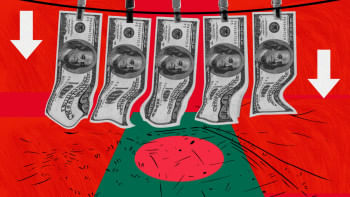

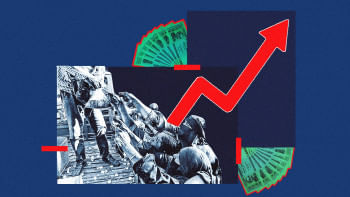






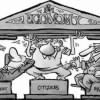

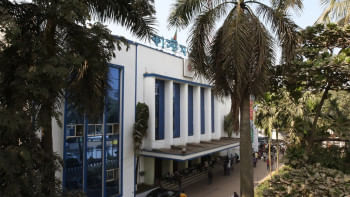
Comments